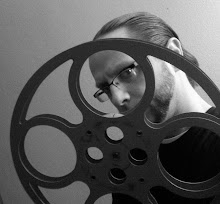In the last decade, writer and director Alfonso Cuaròn has established himself as one of the premier filmmakers working today; his outer-space adventure GRAVITY (2013) was an Oscar darling, his CHILDREN OF MEN (2006) is widely considered to be one of the best films of the millennium, and his entry into the HARRY POTTER series, THE PRISONER OF AZKABAN (2004), is one of the best in the wizarding franchise. With his newest film ROMA, he steps away from the wide scope he’s been working with and goes smaller and personal.
In the Roma neighborhood of Mexico City in the early 1970’s, Cleo (Yalitza Aparicio), is a housekeeper for a middle-class family, consisting of four children, parents, and their grandmother. Life is good, until unexpected events turn her world upside-down.
ROMA does not have much by way of plot, and even by the time the closing credits sneak in, it’s hard to pinpoint exactly what the plot may have been. The bulk of the film has us spending a lot of time with Cleo during her mundane, everyday tasks of cleaning, cooking, and taking care of the children. For the first hour, not much happens, and ROMA unfolds as if a bunch of hidden cameras were placed in a house to keep an eye on the housekeeper.
Once we get past that first hour, things change dramatically as Cleo finds herself with an unexpected pregnancy, and an upset household when the father leaves the family for a mistress. These events spider-web into more happenings, including the radical father of Cleo’s baby, the children misbehaving, the mother going into a spiral, and Cleo finding herself in the middle of the 1971 riots known in the history books as the Corpus Christi Massacre. These events have a heavy impact on Cleo and the audience, as the time we spent with her in the early goings now have a payoff.
Filmed in glorious black-and-white, ROMA looks amazing on the big screen; scenes ranging from the beach and ocean and simple tilework in the house is presented beautifully. This is Cuaròn’s first credit as a cinematographer and he does stunning work. The film is presented simply with very few cuts; there are some incredible long unbroken takes with very specific camera movement and panning. The film moves at a snail’s pace deliberately, as Cuaròn is no hurry to shove information or action in our faces; it takes a lot of patience to take in.
With the exception of Yalitza Aparicio, the cast is mostly made of non-pro’s who have never acted before, and this adds to a very authentic feel. Aparicio in the meantime is excellent as she goes through many emotions caused by her pregnancy and other dire situations.
ROMA is a semi-autobiographical take on Cuaròn’s own upbringing in Mexico City, and upon first viewing it’s not hard to say that the director probably gets more out of this film than general audiences would. But it’s a film that tends to sink in, and the way it is presented offers a lot of food for thought. Even though it is light on action, Spanish-speaking and sub-titled, with a hefty 135 minute run-time, those hearty enough to stick with it will definitely be rewarded. ROMA is a departure for Cuaròn as it doesn’t have the grand scale or adventure of his previous films, but by going smaller he also goes deeper, and further cements his status as one of our best directors.
BOTTOM LINE: See it


No comments:
Post a Comment
A few rules:
1. Personal attacks not tolerated.
2. Haters welcome, if you can justify it.
3. Swearing is goddamn OK.